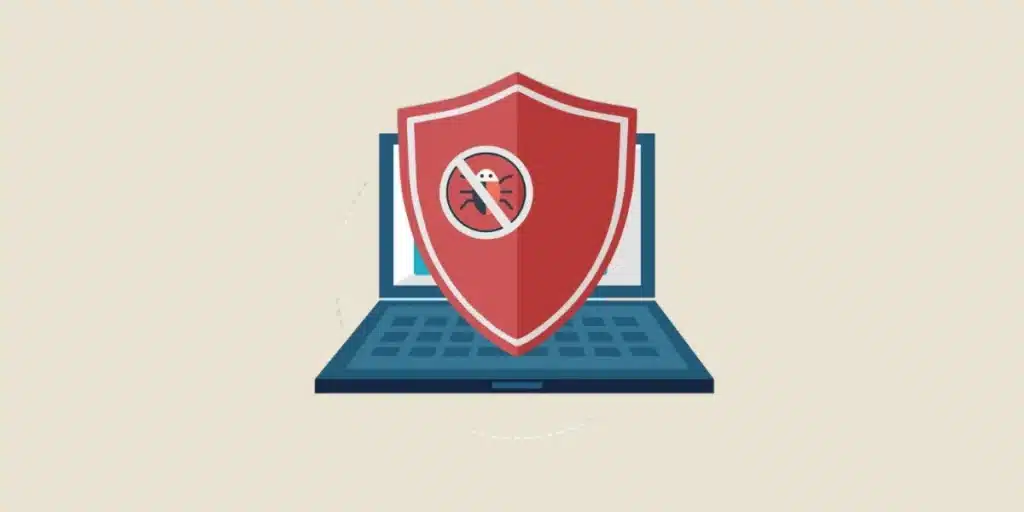A few years ago, using a computer (even a personal one) without installing antivirus software was unimaginable. However, with technology evolving so rapidly, these programs might now seem outdated.
Individuals benefit from protection systems integrated directly into their operating systems (such as Windows Defender). As for companies, most possess a multilayered security arsenal to fend off potential attacks. In this scenario, is antivirus software still useful in 2024? The answer is yes. DataScientest explains the usefulness of these tools and the criteria for selection.
What is an antivirus?
An antivirus is a piece of software designed to protect your computing devices from threats such as viruses, malware, ransomware, and more. This security solution can detect, block, and eliminate these dangers, thereby safeguarding your personal data and ensuring the proper functioning of your devices.
So how does it work in practice? This protection solution operates in the background, continuously scanning the files, websites, or emails you access or download. During this scan, the antivirus compares malicious codes against a regularly updated database. This enables it to identify suspicious files or behaviors. Once detected, these are quarantined to prevent infection, or even deleted if necessary.
Some software goes further by monitoring the Dark Web to ensure your personal data is not compromised.

What is the purpose of antivirus protection?
An antivirus is much more than just a shield against viruses. It helps you navigate the digital world safely. How?
- By detecting and eliminating malware before it damages your system.
- By providing real-time protection for your computer.
- By continuously monitoring your device’s activities to spot any suspicious behavior.
- By analyzing attachments and links in emails to prevent phishing attacks.
- By using artificial intelligence and machine learning to adapt to evolving and sophisticated threats.
- By integrating firewalls to filter network traffic.
What level of protection does an antivirus offer?
Modern antivirus programs guard against a wide array of online threats, such as viruses, malware, ransomware, spyware, keyloggers, rootkits, adware, trojans (Trojan horses), and more. As soon as these attacks attempt to breach your information system, the software detects and blocks them before they can penetrate.
However, note that antivirus protection solutions are not foolproof. There are certain threats for which they prove insufficient, namely:
- Phishing attacks: these often exploit users’ gullibility by tricking them into revealing sensitive information via fake emails or deceptive messages. Even the best antivirus can miss it if you click on a suspicious link.
- Zero-Day attacks: they exploit vulnerabilities unknown to developers. Since they are not listed in antivirus databases, they are more challenging to anticipate and therefore harder to block.
- Drive-By Downloads: a simple click on a corrupted site can trigger the installation of malware in the background, often without any warning.

What’s the key against these threats? Stay vigilant and adopt good cybersecurity practices (such as securing passwords, being especially cautious when browsing on public WiFi networks, and being aware of fraudulent emails, etc.).
How to choose an antivirus software?
From Norton to Avast, Kaspersky to AVG, Eset to Avira, including Bitdefender, McAfee, or F-Secure, there are numerous antivirus software providers. The goal of this article is not to offer you a comparison of the best antivirus on the market, but to provide you with the criteria for selection, such as:
- Protection level: The software must be capable of identifying and neutralizing a broad range of threats, such as viruses, malware, phishing, and more.
- Complementary protection modules: such as unlimited VPN for privacy protection, parental controls to supervise your children’s digital use, or online identity monitoring tools.
- Regular updates: As cyber threats constantly evolve, the software must be regularly updated or risk becoming obsolete against new attacks.
- Performance level: A good protection solution should not slow down your device.
- Compatibility: Some antiviruses specialize in specific systems. Hence, it is important to check if it works on all your devices.
With these criteria, you can choose the best protection for your information system.
However, if you possess sensitive personal data, antivirus alone proves insufficient. This is where cybersecurity training comes in. Through this learning, you will be taught how to protect any information system from the most innovative threats.











